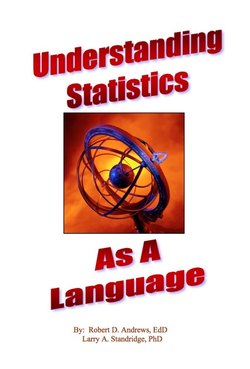Читать книгу Understanding Statistics As A Language - Robert Andrews - Страница 7
На сайте Литреса книга снята с продажи.
Generalizing
ОглавлениеThe third function of statistics is generalizing beyond the limits of a specific investigation to situations that have not been observed. Achieving the first two functions of summarizing and describing is a somewhat limited goal but one that is essential to the meaningfulness of the third function. If what has been observed cannot be expressed clearly and adequately, attributing to the unobserved certainly cannot be done with clarity and meaningfulness.
Results that remain particular usually garner little interest. Particular results that can be generalized, or more accurately, can be interpreted generally garner a great deal of interest. Arguing from the particular to the general is inductive inference. In the long history of arriving at generalized findings, the best solution available has been statistical inference.
Inferential statistics is a valuable body of theory and procedure for generalizing from particular data. Although inference from the particular to the general is subject to error, statistical inference is the best and the closest to an error-free procedure available. A statistical inference is essentially the act of making and communicating a decision about research results.
Definition: Inferential Statistics goes beyond description to draw conclusions or make predictions by interpreting the data. The two classes of inferential procedures are estimation and hypothesis testing. Frequently used inferential statistics are t statistics, F ratio, and chi-square.
